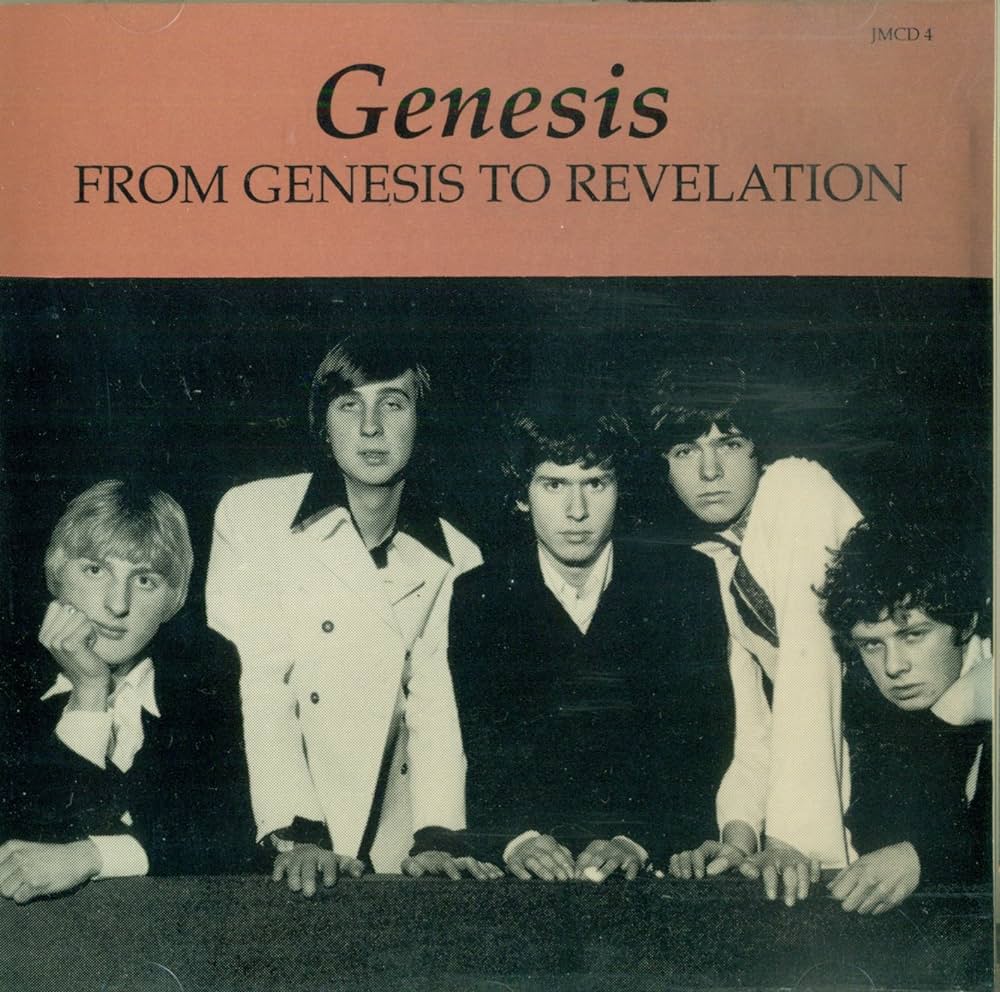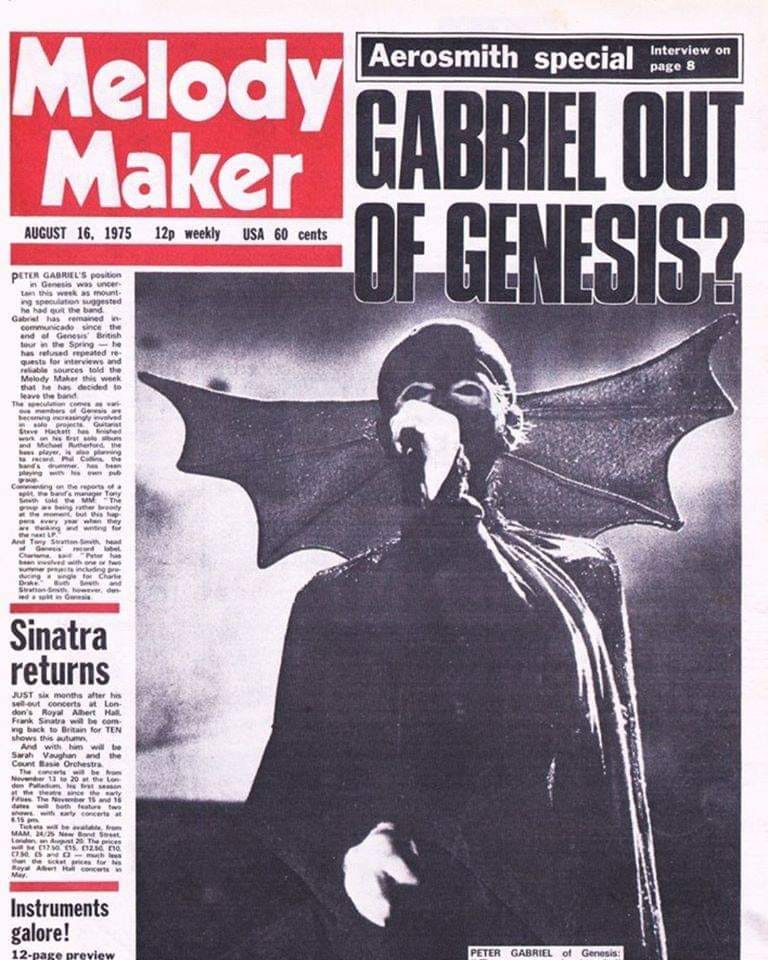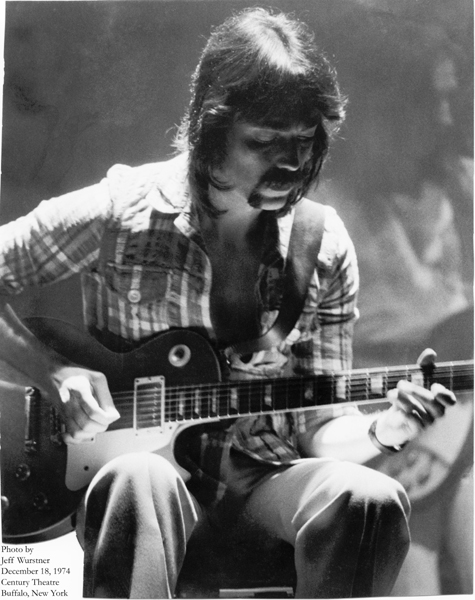On 18 July 1970, Genesis played their last show with founding member and guitarist Anthony Phillips at Haywards Heath.
Charterhouse and ‘The Anon’
Anthony Phillips joined Charterhouse, a public school in Godalming, Surrey, in April 1965. Being a guitarist, he quickly formed a band there with his fellow pupils Richard MacPhail, Rivers Jobe, Rob Tyrell and Mike Rutherford. They named themselves Anon and played songs by The Rolling Stones1, The Beatles and several other pop groups of the era. They performed mostly at parties.
The first member to bring in an own song into Anon was Anthony Phillips: ‘Pennsylvania Flickhouse’. They booked an hour of studio time at Tony Pike’s studio in Putney, as Richard MacPhail remembers: ‘We piled all the gear in Ant’s mother’s Mercedes and got on a bus and I thought ‘An hour, on my God, what are we gonna do with a whole hour? Each song’s three minutes long, that means we’re gonna get about nine songs done.’ We just got one done and we had huge rails with Mr Pike because everything was of course too loud and he said ‘You’re gonna ruin my equipment!’, all that classic stuff that went on in those days in recording studios.’2
In December 1966, the group disbanded.
Anthony Phillips in Genesis
In 1967, Ant and his friend and fellow guitarist Mike Rutherford began writing music together. To record a demo, they asked another Charterhouse pupil, Tony Banks, if he could play organ on a song. Tony agreed under the condition that his mate Peter Gabriel could also come along and sing one of their songs. Both of them had also played in a band at Charterhouse, The Garden Wall. Ant and Mike agreed and soon, former Garden Wall drummer Chris Stewart joined the group.
The demo tape was given to producer Jonathan King, who signed them to his publishing company and they recorded some singles. King then named the group Genesis, and the group recorded their first studio album From Genesis to Revelation (1969). Like on the singles, King added strings arranged by Arthur Greenslade to the mix. To their frustration, the band only found out about the strings when listening to the finished version of From Genesis To Revelation with only Ant Phillips showing his anger by storming out of the studio.
By mid-1969, the boys’ parents wanted them to resume education. At Charterhouse, Ant began studying for further A levels to pursue a university degree. But Ant and Mike had been gripped by rock and roll and decided to become professional musicians. By the end of the summer of 1969, Peter and Tony joined them in their wish to become full-time musicians. They began writing music and touring the country from late 1969 to early 1970. ‘Yet, something was lacking‘, it is said in the press kit of Ant’s first solo album, ‘Phillips, perhaps because he was younger than the others found that life on the road was getting in the way of his writing.’3
The unhappiness and the stress began affecting Ant’s health and also he began suffering from stage fright: : ‘I was in Watford Tech, I remember playing the opening thing of ‘Let Us Now Make Love’ and I looked at the guitar and I thought ‘I haven’t got a clue what comes next’ and then I saw myself playing, but it was really scary.’4 Rich MacPhail remembers him playing a gig at Hackney where Ant was almost catatonic.5
Ant battled with the stage fright for three months thinking it was a passing phase and then fell ill with bronchial pneumonia: ‘Doctors were advising me to leave [the band]6‘, Ant says.
In June 1970, Genesis recorded their second album Trespass. Ant enjoyed working in the studio, but in July, they went straight back into band-life with little sleep, a lot of excitement and although Richard MacPhail tried his best to nourish his mates, pretty basic food. They were travelling and sleeping in their bread van or on floors: ‘We literally pitched up somewhere in the Midlands and we had nowhere to stay’, Ant recalls. ‘Too far to go back and some guy said: ‘Well, I know a guy with a bloody big house in Buxton’ and we stayed on the drafted floor of a bloody big house in Buxton.’7
Anthony Phillips leaves the band
Finally, Ant decided to leave Genesis. ‘I remember driving out with with Richard MacPhail who said ‘Can we have a word with you?”, Mike Rutherford remembers. ‘To the pitch at Richmond rugby ground after a soundcheck. Light was falling, it was a weird atmosphere and Ant said he wanted to leave. It was a huge shock to me.’8 Ant’s last show was at Haywards Heath on 18 July 1970.
Tony Banks says: ‘I thought it was the end of the group. He was vital to its formation and in many ways he was the strongest member. We felt that whatever was special about us was a combination of the four of us being together in the same room so I assumed that when he left, that was it.’9
Losing Ant ‘was the closest we came to busting up’, Mike Rutherford agrees. ‘For some reason we felt so close that if one left, we thought we couldn’t carry on. Of all the changes we’ve been through, surviving Ant leaving was the hardest.’10
The aftermath
After Ant’s departure, Genesis did not disband, but his influence remained. The acoustic beginning of the ‘The Musical Box’, the opening song of their next album Nursery Cryme, was based on an instrumental guitar piece by Mike and Ant called ‘F Sharp’.
Ant himself went into a hiatus. ‘I left Genesis in a cloud of dust’, he says. ‘I remember I was listening to Sibelius when I had one those strange revelations – that I was terribly limited.’11 He started studying various musical styles and in 1974, he began teaching music as a means to further explore the subject. In 1977 he said: ‘In the time since I left Genesis, I’ve studied classical guitar, piano, orchestration.’12 That same year he released his first solo album The Geese And The Ghost. Anthony Phillips is still active as a musician today.
Title photo: Cover of one of the various editions of From Genesis to Revelation
Footnotes
- To this day, Ant sends Christmas cards to Richard addressed to ‘Mick Phail’. ↩︎
- RICHARD MACPHAIL INTERVIEW Revised : GENESIS early years ↩︎
- “The Geese and The Ghost Press Kit“. Passport Records. 1977. pp. 2–3. ↩︎
- ANTHONY PHILLIPS UNFILTERED: GENESIS C0-FOUNDER IN CONVERSATION ↩︎
- RICHARD MACPHAIL INTERVIEW Revised : GENESIS early years. In fact, Anthony Phillips has not played live to this day. ↩︎
- Cherry Red Interview: Anthony Phillips Story – Part 1 – Interview by Mark Powell – 2014 ↩︎
- ANTHONY PHILLIPS UNFILTERED: GENESIS C0-FOUNDER IN CONVERSATION ↩︎
- MIKE RUTHERFORD UNFILTERED: GENESIS GUITARIST/COMPOSER IN CONVERSATION. Now Revised ↩︎
- Bowler, Dave; Dray, Bryan, Genesis. A biography. (London: Sidgwick & Jackson, 1992), p. 35. ↩︎
- Ibid. ↩︎
- Hedges, Dan, ‘It’s that candour moment…’, Sounds (26 March 1977). ↩︎
- Ibid. ↩︎



